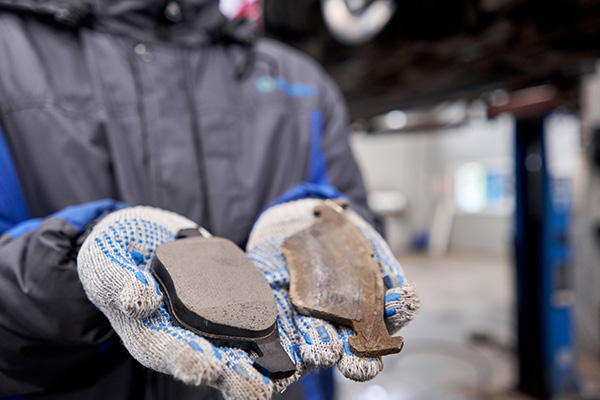
When it comes to vehicle maintenance, one component that should never be overlooked is the brake pads. These small but critical parts play a pivotal role in ensuring your safety on the road. But what happens if you neglect to change them?
The Brake Pads
Before discussing the consequences of not changing brake pads, let's first understand their function. Brake pads are the friction material that presses against the brake rotor to slow or stop your vehicle when you apply the brakes. Over time, this friction causes the brake pads to wear down, making it necessary to replace them periodically.
Consequences of Neglecting Brake Pad Replacement
Decreased Stopping Power
As brake pads wear down, their ability to grip the rotor diminishes, resulting in decreased stopping power. This means it will take longer for your vehicle to come to a complete stop, putting you at risk of accidents, especially in emergency situations.
Damage to Brake Rotors
When brake pads are worn beyond their recommended lifespan, they can damage the brake rotors. The metal-on-metal contact between worn brake pads and the rotor can cause scoring and grooving on the rotor surface, leading to costly repairs or replacement.
Increased Brake Fade
Brake fade occurs when the brake pads and rotors overheat due to prolonged braking, causing a loss of braking efficiency. Worn brake pads are more susceptible to brake fade, especially during heavy braking or driving in hilly terrain, compromising your ability to control the vehicle.
Costly Repairs and Safety Risks
Continuing to drive with worn brake pads not only compromises your safety but also leads to costly repairs in the long run. Replacing brake pads is a relatively inexpensive maintenance task compared to repairing damaged rotors or addressing brake system failures caused by neglect.
Most Frequent Questions Asked
How often should brake pads be replaced?
Brake pads should typically be replaced every 30,000 to 70,000 miles, depending on driving habits and vehicle usage.
Can I replace the brake pads myself?
While some car owners may choose to replace brake pads themselves, it's recommended to have this task performed by a professional mechanic to ensure proper installation and optimal braking performance.
What are the signs that brake pads need replacing?
Signs include squealing or grinding noises when braking, longer stopping distances, brake pedal vibration, and visible wear on the brake pads.
Experience peace of mind on the road – schedule a brake inspection today at Future Auto Service and ensure your vehicle's safety.